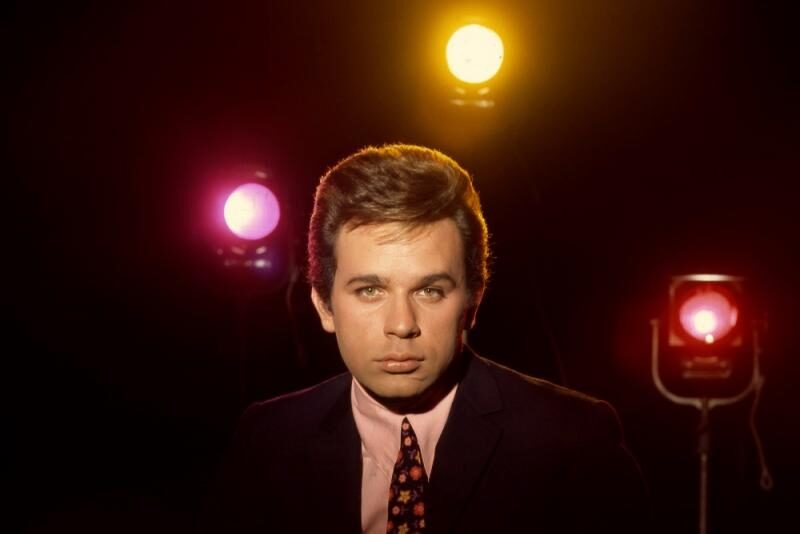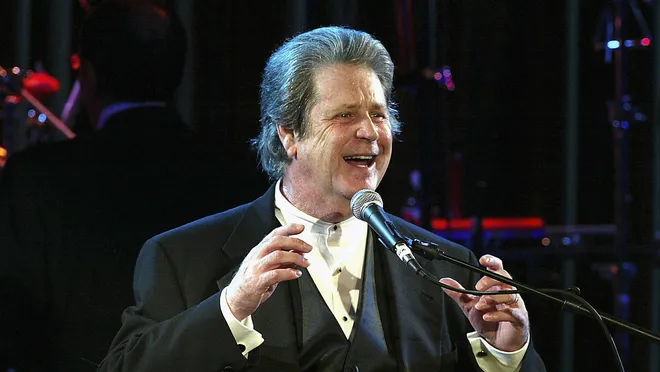
Lou Christie: The Falsetto of the Sixties
Lou Christie was born Lugee Alfredo Giovanni Sacco, and was an American pop and soft rock singer-songwriter whose career soared in the 1960s with hits that defined an era of romantic angst and melodic invention. Born on February 19, 1943, in Glenwillard, Pennsylvania, Christie developed an early passion for music, rooted in Italian-American traditions and shaped by the vibrant doo-wop and rock ‘n’ roll movements of the 1950s. His unique voice — marked by a soaring, operatic falsetto — set him apart in the pantheon of male vocalists and earned him chart-topping hits and a loyal fanbase.
Early Life and Musical Roots
Lugee Sacco grew up in a tight-knit Italian-American family in the small community of Glenwillard, near Pittsburgh. Music was a constant presence in his childhood home, especially the grand operas his family enjoyed and the vocal harmonies of groups like The Four Seasons and The Platters. From a young age, Sacco was captivated by the power of the human voice — especially the dramatic flair of operatic tenors — and began developing his own singing style, often experimenting with his falsetto.
He started performing locally as a teenager, forming vocal groups and writing original songs. His ambition led him to New York City, where he hoped to break into the burgeoning Brill Building scene — a hub for songwriters, producers, and music publishers. Taking the stage name “Lou Christie,” a blend of personal reinvention and professional branding, he set out to make his mark.
Breakthrough and Early Hits
Lou Christie’s first taste of commercial success came in 1962 with the release of “The Gypsy Cried,” a haunting ballad that reached number 24 on the Billboard Hot 100. The song was co-written with his long-time collaborator Twyla Herbert, an eccentric classical musician 20 years his senior. Herbert’s flamboyant creativity and Christie’s pop instincts created a potent songwriting team, and together they penned many of Christie’s biggest hits.
Following “The Gypsy Cried,” Christie scored another hit in 1963 with “Two Faces Have I,” which climbed to number 6 on the charts. These early records showcased Christie’s ability to channel adolescent heartache through his expressive falsetto, often reaching emotionally charged crescendos that blended classical melodrama with rock ‘n’ roll energy.
“Lightnin’ Strikes” and Peak Fame
Lou Christie’s signature song, “Lightnin’ Strikes,” was released in late 1965 and became a number one hit on the Billboard Hot 100 in early 1966. Produced by Charles Calello, who also worked with Frankie Valli and The Four Seasons, the song featured Christie’s trademark falsetto paired with lush orchestration, dynamic tempo changes, and bold lyrical themes of love, temptation, and infidelity.
.
“Lightnin’ Strikes” was groundbreaking in several ways. Musically, it pushed the boundaries of pop production with its dramatic flourishes and sudden shifts from tender ballad to urgent rocker. Lyrically, it portrayed the internal conflict of a man torn between love and lust — a risky narrative at the time. Christie’s voice alternated between tender vulnerability and soaring ecstasy, making the track an instant classic.
The success of “Lightnin’ Strikes” elevated Christie to national fame. He became a fixture on television variety shows such as American Bandstand and Shindig!, and he toured extensively throughout the United States and abroad.
Creative Tensions and Career Challenges
Despite his success, Lou Christie faced challenges from within the music industry. His flamboyant performance style and androgynous falsetto were occasionally met with skepticism or discomfort in a culture that often favored more conventionally masculine rock stars. Additionally, the sexual ambiguity and emotional complexity in his lyrics set him apart from his contemporaries — sometimes to his commercial detriment.
Christie was also drafted into military service during the Vietnam War era, temporarily halting his career momentum. By the time he returned, the pop music landscape had begun to shift. The late 1960s saw the rise of psychedelic rock, soul, and political songwriting, trends that were less compatible with Christie’s melodramatic pop ballads.
Reinvention and the British Invasion
In 1969, Christie made a comeback on the UK charts with “I’m Gonna Make You Mine,” a brash, Motown-inspired single that reached number two on the UK Singles Chart and returned him to international prominence. The song, produced by Tony Romeo, leaned into a more aggressive pop sound while still allowing Christie’s voice to shine. In the UK, where the glam rock scene was taking shape, his theatrical sensibility found a more appreciative audience.
“I’m Gonna Make You Mine” solidified Christie’s reputation as an artist who could evolve with the times while staying true to his musical identity. Though his U.S. chart success dwindled in the 1970s, his popularity in Europe endured, and he continued to record and perform overseas.
Later Career and Artistic Independence
The 1970s and 1980s saw Lou Christie exploring more eclectic projects. He recorded for various labels, including MGM and Buddah Records, and delved into adult contemporary and disco-tinged pop. Though he never replicated the chart success of his early years, Christie remained an active and respected figure in the music industry.
He eventually moved into independent production, releasing albums on his own label and embracing live performance as his main artistic outlet. Christie maintained a loyal fan base, performing at oldies festivals and retro-pop tours throughout the 1980s, 1990s, and 2000s.
His songs continued to be featured in films, television, and commercials, including appearances in The Sopranos, Rain Man, and Moonlight Mile, giving his music a multigenerational appeal. The emotional immediacy of his singing and the vintage pop aesthetics of his records found renewed interest among indie artists and vinyl collectors alike.

Personal Life and Private Persona
Throughout his career, Lou Christie maintained a relatively private personal life. Known for his charisma and showmanship on stage, he kept a low profile off it. He rarely courted the tabloid press, preferring to let his music speak for itself. While his falsetto and emotionally vulnerable lyrics led to speculation about his identity and influences, Christie consistently defined himself through artistry rather than personal exposition.
He was often praised for his professionalism and work ethic by collaborators, and he mentored younger artists behind the scenes. His long-running collaboration with Twyla Herbert remained one of the more unique creative partnerships in pop history — a union of old-world theatricality and youthful exuberance.
Influence and Legacy
Lou Christie‘s influence on pop and rock music is both distinctive and enduring. He helped to popularize the falsetto as a lead vocal style in male pop singing, paving the way for artists like Barry Gibb of the Bee Gees, Prince, and later, indie rock falsetto stylists like Justin Vernon (Bon Iver) and Kevin Parker (Tame Impala).
He was also one of the few artists from the early 1960s to successfully bridge doo-wop and Brill Building pop with the more self-aware, genre-blending sounds that emerged later in the decade. His songs are noted for their theatrical structure, emotionally charged lyrics, and fusion of classical motifs with modern pop arrangements.
Christie’s induction into the Vocal Group Hall of Fame in the early 2000s (as both a solo act and for his work with backing vocal groups) helped solidify his status as a foundational figure in pop vocal tradition. In his final years, Christie continued to record and perform, maintaining a presence at nostalgia festivals and enjoying a new wave of recognition from younger artists rediscovering his music.
Death and Commemoration
Lou Christie died on June 18, 2025, at the age of 82.
Conclusion: The Lightning Still Strikes
Lou Christie’s career is a testament to the power of individuality in popular music. He combined elements of opera, doo-wop, Brill Building pop, and teenage melodrama into something uniquely his own. While his chart success may have peaked in the 1960s, the resonance of his music endured far beyond that era.
Christie gave voice to youthful longing and emotional vulnerability with a confidence and artistry few could match. His falsetto — once considered eccentric — became an instrument of catharsis, seduction, and heartbreak. Whether through the anthemic joy of “I’m Gonna Make You Mine” or the romantic torment of “Lightnin’ Strikes,” Lou Christie left behind a body of work that continues to inspire and move listeners.
Check out Lou Christie on Amazon by clicking here.
If you found this interesting please share it with your friends and family, and check out some of our other articles on Musicians who Died in 2025.
.

